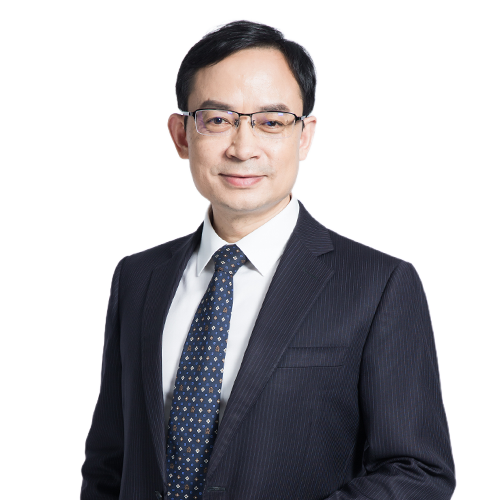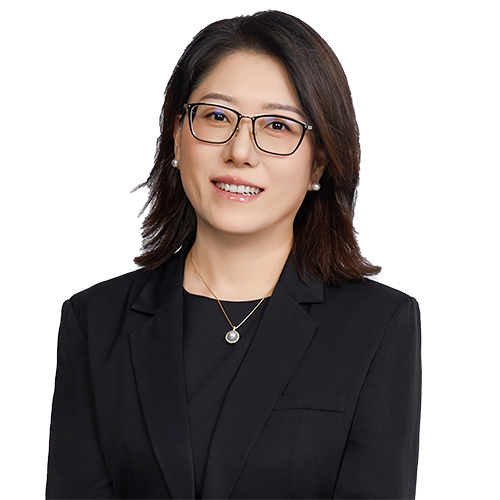Pictures
On the afternoon of July 5, 2025, the “Legal Forum on Theoretical and Practical Issues of Intersection of Criminal, Civil and Administrative Law”, which was jointly organized by Beijing King&Capital Law Firm and East China University of Political Science and Law, and co-sponsored by King&Capital Shanghai Branch, was successfully held at the Changning Campus of East China University of Political Science and Law. The forum gathered well-known experts, professors and elite lawyers in legal practice to discuss the hot issues in the field of criminal, civil and administrative cross-cutting issues, aiming at promoting the in-depth integration of theoretical research and judicial practice.
Sun Wanhuai, Dean of the School of Criminal Law of East China University of Political Science and Law, Tian Wenchang, Honorary Director of Beijing King&Capital Law Firm and Honorary Director of the Institute of Advanced Criminal Defense Studies of Northwest University of Political Science and Law, Li Fenfei, Dual Professor of Renmin University of China School of Law and School of Discipline Inspection and Supervision, Yang Xingpei, Professor of East China University of Political Science and Law, Yuan Bin, Professor of the Research Institute of Criminal Law and Science of Beijing Normal University, and Zou Rong, Professor of East China University of Political Science and Law and Doctoral Supervisor. Mr. Ma Jingyun, President of Shanghai Law Society Lawyers Law Research Association, and Mr. Zhu Yonghui, Director of Beijing King&Capital Law Firm, senior partners Mr. Peng Jiyue, Mr. Men Jinling, Mr. Gong Piguo, Mr. Qi Xiaoling, Mr. Nie Sufang, Mr. Zang Desheng, Mr. Tang Jianbin and Mr. Niu Xingli, partner Mr. Wang Jiaming, and lawyers Mr. Lu Xianghui and Mr. Li Teng of the Shanghai branch office attended this event. The meeting was chaired by Wang Zhong, Director of King&Capital Shanghai Office.
Photos
“Nowadays, a lot of theoretical discussions are always an abstract thinking, from a logic set a logic, which is again a very deep and very figurative issue, I think more to discuss this issue with the practice and lawyers.” Sun Wanhuai, dean of the School of Criminal Law of East China University of Political Science and Law, introduced in his speech the history of decades-long starbursts in criminal law, and hoped that East China University of Political Science and Law and King&Capital could have more long-term cooperation in the future in terms of practical and theoretical research.
Pictures
Zhu Yonghui, Director of Beijing King&Capital Law Firm, thanked the East China University of Politics and Law for its strong support of this forum in his speech. He believes that in recent years, the phenomenon of the intersection of criminal, civil and administrative cases is increasing, and the theoretical disputes and practical problems arising from this have also come to the fore and need to be resolved. The forum brings together theoretical experts and practical lawyers, and will play a positive role in promoting the handling of difficult and complex criminal, civil and administrative cross cases.
Picture.
“In terms of the concept of criminal and civil cross cases, it should refer to the behavioral facts in a case, which involves both criminal and civil legal relations, and the phenomenon of competing, or implicating, two legal relations, leading to the emergence of two kinds of legal responsibility of the competing, controversial, conflicting, or coexisting case form.” In the subsequent keynote speech, Beijing King&Capital Law Firm Honorary Director, Northwest University of Political Science and Law, Institute of Advanced Studies in Criminal Defense Honorary Dean Tian Wenchang from the criminal-civilian crossover, that the need to deal with the principle of criminal before civil situation is actually not uncommon, guided by the common erroneous thinking, as well as the theoretical denial of the phenomenon of the criminal-civilian crossover, which has led to a lot of cases with the criminal before the civil to confuse or escape the civil responsibility. Even expanded criminal liability, “this phenomenon has attracted the attention of some people, but not enough attention, is still relatively serious, objectively leading to the expansion of criminal liability.”
Picture.
The first half of the forum speech, chaired by Peng Jiyue, senior partner of Beijing King&Capital Law Firm.
Picture.
Li Fenfei, a dual-appointed professor at Renmin University of China's School of Law and School of Discipline Inspection and Supervision, spoke on the topic of “Defense Strategies in Criminal-Civilian Intersection Cases”. He pointed out that criminal-civilian intersectional cases, especially those involving enterprises, often have more complex legal issues, which may involve the distinction between criminal offenses and civil wrongs in substance, as well as litigation procedures, and even complex extrajudicial factors, and thus require defense lawyers to choose their defense strategies prudently when handling such cases. Mr. Li emphasized that intercessory defense needs to be based on the premise of the study of guilt, and lawyers should conduct objective analysis of the case to avoid innocent cases from going into the wrong track of negotiation. Once the idea of adversarial defense is chosen, lawyers should prompt the procuratorial authorities to propose lenient sentencing or make a discretionary decision not to prosecute by generating sentencing circumstances favorable to the defendant. In cases where adversarial defense is adopted, lawyers should prioritize collaborating with their own clients, followed by collaborating with the opinions of good defense camps, and introducing expert power when necessary, thereby activating the healthy power of the system in order to achieve the best results in adversarial defense.
Pictures
Yang Xingpei, a professor at East China University of Political Science and Law, talked about the fact that the fact involving legal relationship itself may involve both civil law, administrative law, and criminal law, and when dealing with it, one should first sort out the legal relationship among them, and confirm whether the antecedent illegal behavior has broken through the scope of the original civil or administrative legal relationship, and has already entered the field of criminal law, and it is only then that it should be through the way of criminal legal relationship for Disposal.
Picture
“Looking at the provisions of the criminal law itself, there are a lot of expressions in the criminal law that involve transactions, including sales, trading, and business, of which there are about 110 offenses involving transactions, which is already more than one-fifth of the total number of offenses.” Yuan Bin, a professor at the Institute of Criminal Law Science of Beijing Normal University, mentioned in his speech that this kind of transactional crime is a pain point and difficulty in the defense, in fact, we have to solve two problems, the first one is that the transaction behavior is not established, whether it is transactional or occupational, and if it is confirmed that it is transactional, we need to re-examine it that this transaction is a legal transaction, or is it an illegal transaction. This needs to be reasonably resolved by means of a consideration relationship.
Image
“For the same fact, in the sense of substantive law, if the civil is legal, it certainly does not constitute a criminal offense; if the civil is not legal, it does not necessarily constitute a criminal offense; if the criminal offense certainly constitutes a civil wrong.” According to Men Jinling, senior partner of Beijing King&Capital Law Firm and associate professor (retired) at the University of the Chinese Academy of Social Sciences, who will do it first and who will do it later, as it does affect the actual results, the significance of studying criminal-civilian intersection cases in terms of procedural law is enormous, “It can solve the protection of the right of action, and it will even affect the substantive results of the case. ”
Picture.
Lawyer Ma Jingyun, Party Secretary of Shanghai Haihua Yongtai Law Firm and President of the Lawyers' Law Research Association of Shanghai Law Society, shared the issue of division of responsibility in criminal-civilian intersection cases. She pointed out that the division of responsibility in criminal-civilian cross-case needs to comprehensively consider factors such as the size of the causal force and the degree of fault, and make a reasonable distinction between criminal and civil responsibility. Ma Jingyun mentioned that in judicial practice, the division of responsibility in criminal-civilian cross-case is often complicated, and needs to be analyzed according to the specific case. She emphasized that when handling such cases, lawyers should fully consider the degree of fault of the parties and the causative force of the act in order to determine a reasonable division of responsibility. Ms. Ma also pointed out that the handling of criminal-civilian cross-case also needs to pay attention to the connection between civil liability and criminal recovery and restitution, so as to avoid the phenomenon of “double compensation” for victims.
Pictures
Mr. Gong Piguo of King&Capital Law Firm discussed the practical problems in criminal-civilian intersection cases from the perspective of property protection. He believes that under the current legal environment, the number of criminal-civilian intersection cases may increase, especially in the field of corporate governance and financial capital. Mr. Gong summarized the rules for determining the validity of contracts involved in crimes, clarified the judicial trend of criminal-civil parallelism, and emphasized the need to differentiate between personal property and corporate property when dealing with criminal-civilian cross-cutting cases, and to promote civil-criminal concurrent hearings in accordance with the validity of the contracts involved in the case. Mr. Gong mentioned that in judicial practice, property protection is an important issue in criminal-civilian cross-cutting cases, especially when it comes to corporate property and shareholders' rights and interests. He pointed out that when dealing with such cases, lawyers should fully consider the different value orientations of criminal law and civil law, and safeguard the property rights and interests of the parties through lawful procedures. Mr. Gong also suggested that relevant legal provisions should be further improved in the future to clarify the specific rules for property protection in order to improve the fairness and efficiency of judicial practice.
Pictures
Ms. Qi Xiaoling, Senior Partner of King&Capital Law Firm, focused on the demarcation between civil litigation strategy and the crime of false litigation. She pointed out that civil false litigation and criminal false litigation crime are important issues in the cross-cutting area of criminal and civil affairs, and that the litigation strategy of the parties in civil litigation may involve the forgery or tampering of evidence, which is a certain degree of cross-competition with the crime of false litigation in criminal affairs. Mr. Qi explains the difference between “creating something out of nothing” and “partial tampering” and “unilateral fraud” and “malicious collusion”. The difference between “false litigation” and “partial tampering” and “unilateral fraud” and “malicious collusion”, and through sharing their own successful cases of innocent defense, told the criminal false litigation cases of innocent defense strategy. Ms. Qi also analyzed the question of whether false litigation behaviors can be incriminated in different litigation stages, such as arbitration proceedings, civil second instance proceedings and civil retrial proceedings. She emphasized that lawyers should strengthen the theoretical research on the crime of false litigation, clarify the connection between civil and criminal lawsuits and the conviction and sentencing standards of false litigation cases, and enhance the practical ability of handling false litigation cases.
Pictures
The second half of the forum was hosted by Nie Sufang, Senior Partner of Beijing King&Capital Law Firm.
Pictures
In his speech, Zou Rong, professor and doctoral supervisor of East China University of Political Science and Law, cited several specific situations of substantive and procedural disconnection between the criminal and civil procedures, supported by practical examples. He believes that to solve the problem of cross intractable, should start from the front end, in the time of legislation should be considered criminal, civil, administrative synchronous participation, synchronous research, in the legislation of the first convergence, “do not legislate itself is disconnected, the specific treatment in the detachment is inevitable.”
Pictures
Zang Desheng, senior partner of Beijing King&Capital Law Firm, focused on the reasons for administrative violations of the crime. He referred to the more common practice of the cross-cutting issue of execution and punishment, in practice, due to the unclear boundaries between the two, or even the coexistence of the two, can be found in the grounds for the crime, the specific can be considered to administrative violations, administrative non-lawful, administrative procedures, the substantive interpretation of the criminal law, as well as the administrative determination of the point of view of the exclusion of the crime.
Picture.
“Food crimes have distinctive administrative subordinate characteristics, its criminal composition is usually in violation of administrative regulations, not obtaining administrative licenses or against the administrative safety regulations as a prerequisite, food-related crimes in the judicial determination of the difficulty lies mainly in the administrative violation and how to delineate the boundaries of criminal offenses,” King&Capital Food and Drug Law Research Center, director of the Tang Jianbin Lawyer through the production, sale of poisonous and harmful food crime and production, sale of food does not meet the safety standards, in-depth discussion of food administrative violations and administrative violations of the interface and boundaries of the problem. He pointed out that the focus of the line of demarcation in the different standards of proof, the difference in the amount of money involved and the subjective knowledge of the requirements, “whether to let or not to use is a management issue, whether it is toxic is a scientific issue, the violation of administrative regulations and violations of the criminal law can not be equated, this is the law should be the scientific attitude and logical rationality, but also the criminal law of modesty of the inevitable requirements”.
Pictures
Lawyer Niu Xingli, senior partner of Beijing King&Capital Law Firm, used the case of real estate developers illegally absorbing public deposits as an example of criminal-civilian crossover. She further said that in such a case, immediately pursuing the criminal responsibility of the real controller is not conducive to the enterprise to find new investments and reduce the losses of creditors and investors, “whether from the economic point of view of the creditors, or from the point of view of social stability, how to effectively enable the creditors to recover the principal or part of the interest is an important factor to maximize the solution of social stability. ” And enterprises at this time of bankruptcy, into the bankruptcy process will appear more serious cross-cutting difficulties, “the only cross-departmental and cross-procedural information sharing mechanism, but also to cohesion of legislative, judicial and theoretical combination, in order to crack the theoretical dilemma.”
Image
Lawyer Wang Jiaming, a partner of Beijing King&Capital Law Firm, shared the procedural and evidentiary issues of the convergence of execution and punishment within the field of securities crimes. She pointed out that the problems faced by securities crimes in practice are concentrated in the procedure and evidence of the convergence of execution and punishment, and suggested that the specific rules of the convergence of execution and punishment should be clarified in the legislation and judicial practice, so as to improve the uniformity and fairness of justice. Ms. Wang mentioned that, in judicial practice, the handling of securities violations and crimes often involves the choice of procedures and order of priority, and in practice, there are a variety of situations, such as first criminal and then civil, first civil and then criminal, or criminal and civil in parallel. She pointed out that different procedural choices may have a significant impact on the outcome of the case, and therefore clear legislative provisions or judicial guidelines are needed. Ms. Wang also emphasized that when handling securities crime cases, lawyers should pay full attention to the different standards of evidence and the transformation of criminal evidence in the context of execution and punishment, so as to maximize the litigation benefits for the listed companies and related persons and other subjects involved.
Pictures
Mr. Lu Xianghui, a lawyer from Beijing King&Capital Law Firm, discussed the controversial issue of the use and identification of evidence in cases of convergence of execution and punishment at the forum. He pointed out that more and more transcript-type and opinion-type evidence collected by administrative authorities are entering criminal proceedings, triggering disputes over whether they need to be re-collected. In recent years, the Supreme Court has gradually allowed administrative opinions and appraisals to enter criminal proceedings, but views on this issue remain inconsistent. Mr. Lu emphasized that the defenders need to strictly examine the evidence in terms of the subject of collection, scope and review rules. Only from the qualification of evidence for the defense has been difficult to achieve the effect, need to determine the opinion of evidence for substantive review, non-specialized issues must adhere to the principle of evidence, can not rely on the “opinion” determination. He also suggested that the defenders should be skilled in determining the logic and basis for in-depth study of specialized issues, and the use of article 41 of the criminal procedure law provides for the “application for access to evidence that has been collected but not submitted” rule, the application for access to the “samples of evidence” that is easy to be ignored, which may become a breakthrough in the review of evidence. This could be a breakthrough in the examination of evidence.
Pictures
Mr. Li Teng from King&Capital's Shanghai office focused on the issue of inversion of sentence in the case of information disclosure violation and analyzed it from the legislative level. He pointed out that the inversion of execution and punishment refers to the fact that the party concerned feels the administrative punishment is heavier than the criminal responsibility, and this phenomenon exists in the legislation of information disclosure violation. The Administrative Measures for Information Disclosure of Listed Companies guides the Securities and Futures Commission (SFC) to impose penalties in accordance with Article 197 of the Securities Law, and the information disclosure obligation holders (mostly listed companies) are subject to a maximum fine of RMB 5 million yuan for non-disclosure, and a maximum fine of RMB 10 million yuan for non-compliance with the disclosure requirements, which is a double penalty system. However, the criminal law “crime of illegal disclosure and non-disclosure of important information” adopts a single penalty system, which only penalizes the responsible person but not the unit. The reason for this is that the criminal legislator has taken into account the fact that the violation of laws by listed companies has already harmed the interests of shareholders, and if a fine is imposed on the unit, it will aggravate the loss of investors, which is a progress of the legislative concept. The high fines in the Securities Law may cause secondary harm to investors, and its deterrent effect is worth thinking about.
Picture.
“The forum launched an in-depth discussion on 15 vertical topics centered on criminal-civilian cross-case, rules of evidence for execution and punishment, and procedural articulation mechanism.” In the final closing speech, Chu Changzhi, managing partner and CEO of Beijing King&Capital Law Firm, once again thanked for the cooperation and support with East China University of Political Science and Law. Chu Changzhi introduced the forum as one of the 30th anniversary of King&Capital series of activities, the firm hopes to take the event as an opportunity, through the collision of ideas, to solve the practical pain points, and promote the process of the rule of law. And the successful holding of this forum, will certainly bring together more consensus, for the academic community industry sincere collaboration to test the waters for the community to build a more solid bridge between practice and academia.













